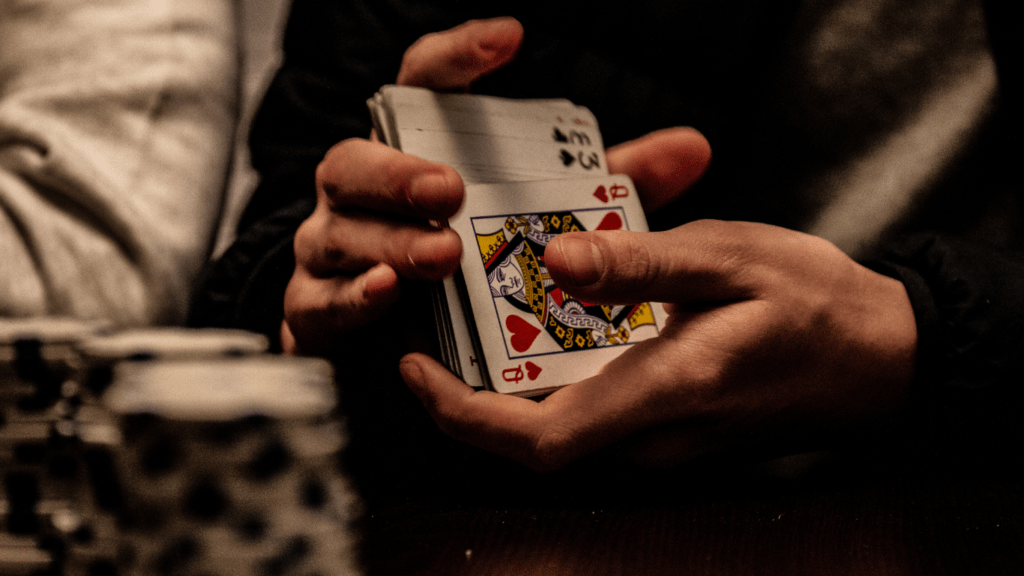Struggling with gambling triggers can be a challenging and overwhelming experience for many individuals. In my years of expertise, I’ve discovered that recognizing these triggers is the first step towards regaining control. Understanding what prompts the urge to gamble is crucial in breaking free from its grasp. By pinpointing these triggers, I’ll share effective strategies to overcome them and pave the way to a healthier relationship with gambling. Let’s delve into practical techniques that can empower you to identify and conquer your gambling triggers, leading to a more fulfilling and balanced life.
Understanding Gambling Triggers
To effectively address gambling triggers, it’s crucial to comprehend the factors that contribute to these impulses. Recognizing the underlying causes that prompt the urge to gamble is key to overcoming this challenge. By identifying and understanding these triggers, individuals can take proactive steps towards managing their gambling behavior and making positive changes in their lives.
Common Triggers in Gambling
When it comes to identifying and overcoming gambling triggers, it’s crucial to recognize the common factors that can lead to compulsive gambling behavior. Let’s explore the different triggers that can influence individuals to engage in problematic gambling habits.
Stress-Related Triggers
Stress is a significant trigger for many individuals struggling with gambling addiction. When I’m under high stress, whether it’s due to work pressures or personal issues, I notice that the temptation to gamble intensifies. Understanding how stress affects my urge to gamble has been key in managing this trigger effectively. By finding healthier ways to cope with stress, such as practicing mindfulness or engaging in physical activities, I’ve been able to reduce the influence of stress on my gambling behavior.
- Emotional Triggers
Emotions play a critical role in driving compulsive gambling behavior. For me, feelings of loneliness, anxiety, or excitement can act as potent triggers for gambling. Recognizing the connection between my emotions and gambling urges has empowered me to take control of my reactions. Developing emotional awareness and seeking support from loved ones or a therapist has been instrumental in managing these triggers. By addressing the underlying emotional issues, I’ve been able to diminish the power of these triggers over time. - Environmental Triggers
Our surroundings can also serve as triggers for gambling behavior. Whether it’s passing by a casino on my way home or receiving promotional emails from gambling websites, environmental cues can reignite the desire to gamble. Being mindful of the places, people, or situations that trigger my urge to gamble has helped me create a safer environment for myself. Limiting exposure to gambling-related stimuli and seeking alternative recreational activities have been effective strategies in mitigating the impact of environmental triggers on my gambling habits.
Identifying Personal Triggers
Exploring personal triggers is crucial in understanding and combating compulsive gambling behavior effectively. Recognizing these triggers empowers me to address the underlying causes that fuel the impulse to gamble. Common triggers encompass stress-induced factors, emotional instigators, and environmental stimuli. Stress, emotions like loneliness or anxiety, and environmental cues, such as proximity to a casino, can heighten the allure of gambling activities.
To manage these triggers successfully, I focus on adopting healthier coping strategies, enhancing emotional intelligence, seeking assistance from supportive networks, and establishing a secure environment that minimizes the impact of triggers on my gambling tendencies.
Overcoming Gambling Triggers
Exploring personal triggers is crucial in effectively combating compulsive gambling. Stress, feelings of loneliness or anxiety, and environmental cues can significantly amplify the temptation to gamble. To manage these triggers successfully, I focus on adopting healthier coping strategies, developing emotional intelligence, seeking support, and creating a secure environment.
I’ll start by replacing unhealthy gambling habits with positive alternatives. Engaging in hobbies, physical activities, or spending time with loved ones can divert my attention from the urge to gamble. Additionally, understanding and regulating my emotions play a key role in overcoming triggers. Recognizing when I feel vulnerable to gambling impulses and finding healthy ways to cope with those emotions are essential steps in this process.
It’s important to seek support from friends, family, or professional counselors. Talking about my struggles with trusted individuals can provide valuable insights and encouragement to resist the urge to gamble. Furthermore, creating a safe environment free from gambling-related cues can significantly reduce the impact of triggers on my gambling tendencies.
Overcoming gambling triggers requires a multi-faceted approach that includes replacing negative habits with positive ones, managing emotions effectively, seeking support, and creating a supportive environment. By implementing these strategies, I can regain control over compulsive gambling behavior and work towards a healthier relationship with gambling.




